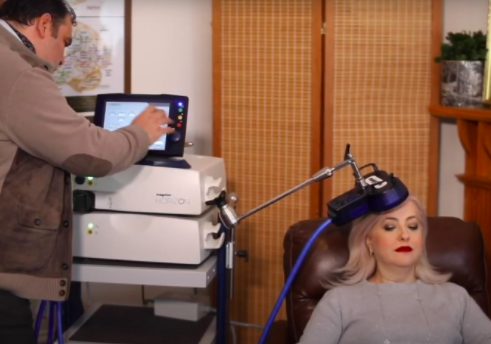As we are all aware that the mental health issues have risen in the past decade amongst the people, with the increasing workload and the changes in lifestyles. But what gave these issues, especially depression and anxiety, a serious jump was the outbreak of the worldwide pandemic. Being confined in our homes with a constant lingering threat of succumbing to the virus severely affected most people. This pandemic has disrupted critical mental health services in 93% of countries worldwide which resulted in a tremendous demand for mental health workers according to a new WHO survey.
Specialist Psychologist Alptekin Aydin is a renowned mental health worker, who is known for being the first Turkish Psychologist in London to complete the European TMS Clinical Certification Course. The TMS Clinical Certification Course is recognized by both the National Institute for Health and Care Excellence (NICE) in the UK and the Food and Drug Administration (FDA) in the U.S. and is accredited with CME (EACCME).
What exactly is TMS? And how does Aydin come into the picture? Well, to answer that, TMS is Targeted Transcranial Magnetic Stimulation which is a relatively short, non-invasive, outpatient treatment that includes no anesthesia or sedation and even no downtime after the completion. Where Antidepressant medication has a vast list of side effects this treatment has very mild repercussions and is pain-free. Dr. Aydin on the other hand is known for encouraging the application of innovative rTMS treatments that incorporate Cognitive Behavioural Therapy (CBT) to offer the quickest solutions for mental health conditions.
The pandemic played a pivotal role in the lives of people, affecting them in ways unfathomable. With the outbreak of the worldwide pandemic, 69% of adults in the UK according to the survey experienced feeling out of their bodies, worried, anxious, bored, and stressed. The most common factors that affected the well-being of people during this time were the constant worry about the future (63%), feeling stressed or anxious (56%), and feeling bored (49%). Aydin, throughout this unfortunate time, contributed his skills as a psychologist, leveraging TMS to treat over 1000 patients. As TMS is non-systemic, having no effect on other areas of the patient’s body like antidepressants makes TMS a viable option. Aydin exclaims that during his diagnosis, there were several symptoms that he noted, such as low mood, loss of interest or pleasure, feelings of guilt or low self-worth, disturbed sleep or appetite, low energy, and poor concentration in his patients.
TMS can be used to treat all types of depression such as clinical depression, depressive episode, recurrent depressive disorder, reactive depression, dysthymia, manic depression, psychotic depression, prenatal or postnatal depression, and seasonal affective disorder. After 10-15 sessions of TMS, Aydin exclaims that patients experienced a significant reduction of depression symptoms. rTMS-treatment used by Specialist psychologist Mr. Aydin has a success ratio of 95% when combined with Cognitive Behavioral Therapy (CBT). TMS therapy also offers a huge opportunity for those who suffer from any ongoing Motor Stroke issues, Depression, OCD, Panic Attack & Anxiety, Substance Misuse, or any other mental health issues
Aydin has over two decades of experience working in this field and is an alumnus of King’s College London, a member of British Psychological Society (MBPsS), Advanced Practitioner Member of The Federation of Drug & Alcohol Professions (FDAP- APM) Transcranial Magnetic Stimulation (TMS) practitioner & Bioresonance Therapy Practitioner. The goal of CBT for depression is to start targeting problematic thoughts and actions that are occurring in the present – as opposed to looking back in the past for a cause – teaching patients skills that they can use to become more aware of their negative thoughts, evaluate their validity and, when not accurate, replace them with more realistic/balanced ways of thinking. TMS treatment was approved by NICE in 2015 for treating depression; yet as a new treatment, it is not widely available in the UK, with just a few NHS trusts and a handful of private clinics offering the service. Mr. Aydin currently offers this new TMS treatment at his Southgate clinic.

